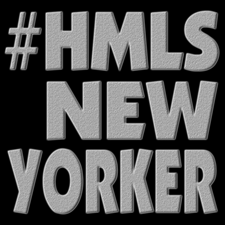“I stood alone on the veranda of the Villa Silla, looking out into the dark night. Around me grew the rich, tropical vegetation, and below the waves of the Atlantic Ocean lapped against the coast. The night was still. I wonder if my ancestors had come from this land. I wondered if they had been […]
Read the rest of this entry »Archive for October, 2014
TODAY IS BUY BLACK FRIDAY
PLEASE PASS THIS ON! (EACH ONE TEACH ONE OR TWO!) THIS IS PHASE ONE ON HOW WE CAN HELP TO STRENGTHEN & EMPOWER OUR COMMUNITY: The 2008 not guilty verdict in the Sean Bell case evoked outrage, emotion, and debate. It is not an anomaly that the police officers involved in the Sean Bell slaying […]
Read the rest of this entry »Quote Of The Day
“I asked myself the two questions I always ask when in doubt: Have I violated God? No. Have I violated the law? No. When I can answer no to those two questions, I am always okay.” -Dick Gregory Tweet
Read the rest of this entry »Black History Fact Of The Day: Jasmine Plummer
Jasmine Plummer is the first female quarterback to lead her team to the Pop Warner Super Bowl. Her life story inspired the movie, “The Longshots.” Tweet
Read the rest of this entry »Quote Of The Day
“I got my start by giving myself a start.” -Madam C.J. Walker Tweet
Read the rest of this entry »Wise Intelligent Disusses Culture & Art
Wise Intelligent discusses: The power and influence of Black art, the myth of “conscious” music not selling, Hilary Clinton’s view of hip hop, what the purpose of an artist should be, and more. Tweet
Read the rest of this entry »Black History Fact Of The Day: The Lantern
On August 19, 1884, Michael Harvey received a patent for his invention of the lantern. Tweet
Read the rest of this entry »Quote Of The Day
“People do not grow automatically, they grow only with intensive political education and constant practice.” -James Forman Tweet
Read the rest of this entry »Black History Fact Of The Day
On October 1, 1957, Christopher L. Taylor received a patent for his device that combined a toothbrush and a dentifrice dispenser. The dentifrice dispenser was capable of dispensing liquid, powder, or paste. Tweet
Read the rest of this entry »Quote Of The Day
“I had some time before perceived American reaction to color to be synonymous with a conspiracy to de-develop the Black persona and keep Blacks so busy defending their right to exist that all of their energies would be diverted and they would thus retrogress, becoming officially the American untouchables, its aboriginals, caught in a static […]
Read the rest of this entry »

